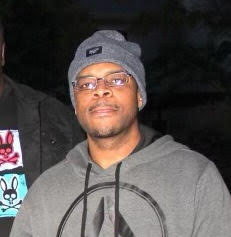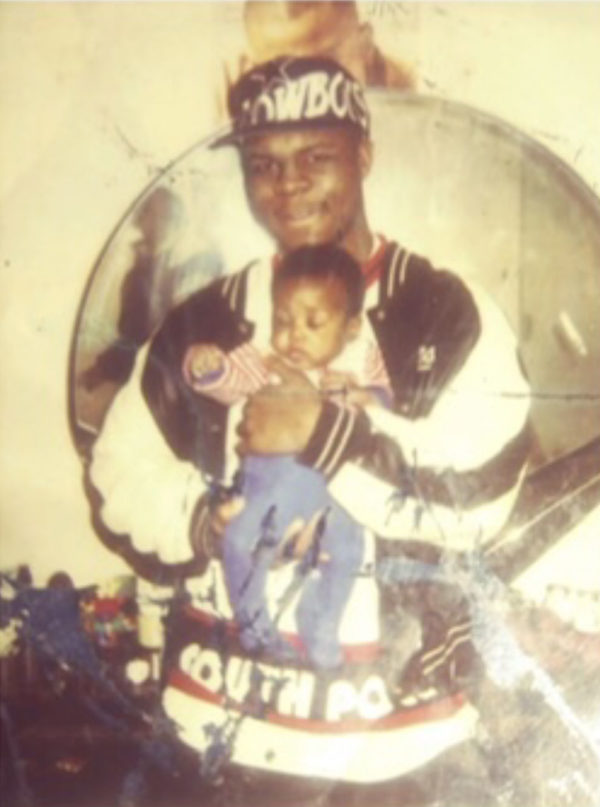Bernard Williams was 17 years old when he was convicted of murder for a 1996 killing. He spent 23 years in prison for a crime he claims he didn’t commit.
Now Williams is suing the city of Chicago and several of the Chicago police investigators who helped wrongfully convict him, according to a federal lawsuit filed this month.
The complaint alleges that detectives with the Chicago Police Department’s Area Four suppressed evidence, manipulated witnesses and fabricated things like a confession to seal Williams’ fate. It claims officers also beat and psychologically abused his co-defendant DeAngelo Johnson during interrogation, coercing Johnson to make a false confession that implicated Williams as his accomplice in the murder.
Williams, now 41, maintains his innocence. The Illinois Appellate Court vacated his murder conviction and ordered a new trial in February 2019, according to the Chicago Sun-Times. Williams was set free on $10,000 bail. A spokesperson from the Cook County State’s Attorney’s Office confirmed Friday that he will be tried again for the 1996 homicide.
The 30-page suit filed in U.S. District Court for the Northern District of Illinois names the city of Chicago, retired Detective Kriston Kato, his former partner Sgt. Samuel Cirone, detectives Patricia Sawczenko, John Farrell, Sgt. Chasen M. Cronin, J. Rawski, Sgt. J. Risley, and other unidentified officers.
It claims Williams was denied due process, maliciously prosecuted and illegally detained. It also alleges the city of Chicago failed to intervene and allowed illegal police practices to run rampant.

Williams is being represented by Chicago-based Loevy & Loevy Attorneys at Law, one of the nation’s largest civil rights law firms.
“This horrible story of yet another young Black man locked up for decades after Chicago police fabricated evidence and framed him for a murder he did not commit is another example of why our city is known as America’s wrongful conviction capital,” one of Williams’ attorneys, Steve Art, said in a statement provided to Atlanta Black Star. “Police crimes like those committed against Mr. Williams and many others allow the guilty to go free to commit further crimes, poison our communities’ relationships with the police for generations, and cause incomprehensible harm to Black kids and their families. Our city during this and past administrations has refused to hold police officers responsible for this misconduct, and it has not reckoned at all with the harm that it has caused.”
Attorneys said 70 cases of Chicago police tampering with or fabricating evidence have surfaced since 1986.
A spokesperson for the Chicago Police Department declined to respond Friday to allegations levied in the lawsuit, citing the pending litigation.
Gary Thomas was shot and killed as he stood outside a tavern in the West Garfield Park neighborhood on Chicago’s west side. Three bystanders were wounded during the Aug. 23, 1996, shooting. One of the victims told investigators at the scene there were shooters, identifying them as Black men aged 18 or 19.
Martinoe Powell and his son were standing outside with Thomas and a man named Eric Smith at the time of the shooting. Swczenko and two other detectives questioned Powell at the hospital that day and he said he didn’t recognize the gunmen.
It wasn’t until Kato, Cirone and Farrell began investigating the shooting that Williams became a suspect in the case, according to his lawsuit. When detectives interviewed Smith he said he recognized the shooters but didn’t know their names.
Williams claims the detectives lied and stated Smith identified him as one of the shooters in a report when he hadn’t. He alleges they then coerced Powell to pick him out of a photo lineup.
According to Williams’ 30-page complaint, Johnson was also 17 and had a low IQ when investigators questioned him at Area Four precinct headquarters. He claims detectives Kato and Cirone abused Johnson physically and psychologically, depriving the teen of sleep for over 24 hours before he finally broke and gave a false confession. Williams’ suit said Johnson wasn’t even a suspect in the shooting, he was simply in the car with Williams when officers apprehended him.
Johnson was ultimately convicted of murder and sentenced to 75 years. He remains in state prison today, Illinois Department of Corrections records show.
Williams said the investigators fabricated a confession from him after he insisted he was innocent under interrogation for more than 24 hours. Williams’ attorneys claim the detectives “made an agreement with one another…to secure a false and involuntary confession from Johnson, to manipulate and coerce witnesses into implicating Williams in the shooting, to fabricate evidence, and to use that false evidence to initiate and perpetuate false criminal charges against Williams.”
Williams was convicted at a 1998 bench trial, and a judge sentenced him to 80 years in prison. The lawsuit stated he missed out on raising his son, who was 9 months old when Williams was arrested.
“These practices unfortunately have been pervading Black and brown communities for way too long,” Makeba Rutahindurwa, a justice fellow at Loevy & Loevy, told Atlanta Black Star. “And it’s really important, as Mr. Williams’ story suggests, that we try and find ways to stop this misconduct from happening, especially in the city of Chicago. So we’re just trying to hold accountable the systems and persons responsible for harming Mr. Williams’ life.”

The lawsuit alleges Chicago officials never cracked down on a culture of intimidation, evidence suppression, false reports and coercion that Williams insists was widespread in the Chicago Police Department — particularly Area Four — in the 1980s and ’90s. That allowed a number of innocent people to be wrongfully convicted, according to the complaint.
Kato retired in June 2006 after 30 years on the force, the Chicago Crusader reports. He was praised for the high conviction rate on his investigations and touted by prosecutors and fellow officers for his interrogation skills. He received several department commendations during his career.
But Kato also racked up dozens of brutality complaints that called into question many of the confessions he secured, according to the Washington Post. Many of Kato’s former colleagues defended him despite the allegations against him.
“There’s been examples of police misconduct that have been exposed over the years,” Thomas Needham, a former prosecutor who worked with Kato, told the Post in a 2018 story. “About this particular detective, I never saw a whiff of that misbehavior. … His personality and his demeanor are completely inconsistent with someone that would frame someone for murder.”
Williams’ lawsuit highlighted a pattern of alleged misconduct in 22 different cases between 1988 and 2003 where Kato slapped, kicked, punched and choked alleged criminals during questioning. Many of the interrogations lasted days and oftentimes involved Black men. Many claimed they were denied food, sleep, bathroom breaks and not allowed to see their attorneys.
In 1990, Kato punched a man named Daniel Gasca at least 12 times in the head, throat and chest while trying to get him to confess to a fatal stabbing, despite the fact that Gasca was in Cook County Jail on an unrelated charge the night of the stabbing. Kato allegedly beat an admission out of Michael Waslewski, one of Gasca’s friends, who gave a detailed statement of how the men stabbed the victim during a fight over money and stuffed his body in the trunk of a car. Williams’ lawsuit notes that was physically impossible. Waslewski was charged with murder.
“All these people want you to believe that the police at Area Four Violent Crimes and in particular Kris Kato were hellbent on clearing these cases,” said Timothy Joyce, an assistant Cook County state’s attorney at the time, according to the Chicago Tribune. But they “have more compelling reasons to lie than almost anyone who’s been in this courtroom.”
A diabetic man claimed Kato withheld his insulin until he signed a false confession during a 1992 interrogation. A 15-year-old boy said the detective squeezed his genitals and promised him leniency during a 1994 interrogation that lasted overnight.
Some of the targets of Kato’s investigations have been exonerated. Others had charges dismissed before they were convicted. Courts have ruled Kato’s tactics unconstitutional and the Illinois Torture Inquiry Commission upheld a torture claim one of the complainants made against the former detective.
But Chicago city officials never disciplined Kato, according to Williams’ lawsuit.
“City of Chicago failed to meaningfully discipline [Detective] Kato or other officers engaged in similar misconduct,” the lawsuit went on to state. “Defendants engaged in the misconduct set forth in this complaint because they knew that the City of Chicago and its police department tolerated and condoned such conduct.”
Williams’ attorneys said his life was turned upside down and claim the conviction “consumed” his youth with “the horror of his wrongful imprisonment.” They insist the lawsuit is about holding the people responsible for his time lost accountable.
“Mr. Williams’ story is a tragic, but unfortunately far too common one,” Rutahindurwa said. “That is why it is so important to shed light on the widespread police misconduct that devastates Black communities in particular and causes long-lasting, irreparable harm.”


